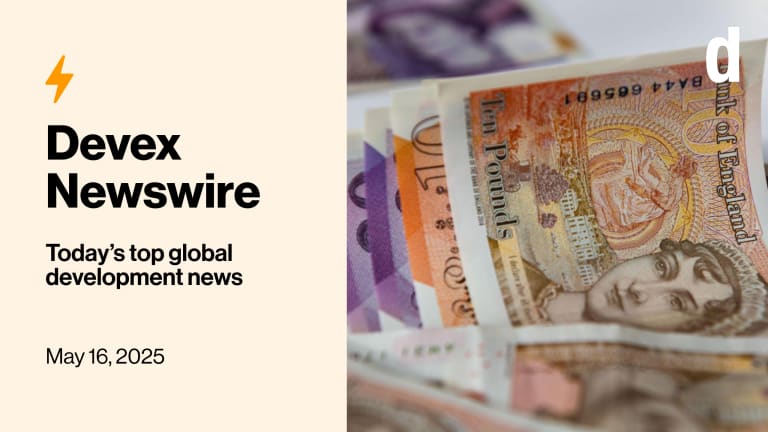
Call her the Bill & Melinda Gates Foundation’s ambassador to Europe.
At a March 17 conference at the U.K. House of Commons, Anja Langenbucher spoke on behalf of the world’s largest charity about the importance of global health in the European Union’s development policy. The meeting also included European Commission officials and parliamentarians across Europe.
Prior to her role at the Gates Foundation, Langenbucher served the European Bank for Reconstruction and Development, where she managed investments in agribusiness companies across Eastern Europe.
Langenbucher is one of today’s most influential development leaders under 40 in London.
Devex is recognizing 40 of these young London-based trailblazers in international development. They are social entrepreneurs, government leaders, development consultants, business innovators, advocates, development researchers, nonprofit executives, philanthropists and investors.
We asked Langenbucher about the Gates Foundation’s goals in Europe and her thoughts on EBRD’s future. Here’s what she said:
What are your three top policy goals for 2012 in your work for the Gates Foundation?
In 2012 my overall goal is to ensure that Europe continues to invest in smart aid during this time of fiscal constraint – and I will focus particularly on Germany and the European Commission. Germany is very interested in high-impact, results-based aid, and it will be critically important that the European Commission’s currently negotiated multi-annual financial framework includes a sufficient quantity of aid resources – as well as high-quality programmes for aid investments.
As an advisor to the Committee on World Food Security, what actions are you pushing to help prevent crises like the on-going one in the Horn of Africa?
Our work at the foundation focuses on stimulating lasting change, which depends on sustainable productivity increases for small farmers with a particular emphasis on women. Our long-term view is ultimately aimed at preventing such terrible crises.
But we also recognize the need to move with urgency. In the Horn of Africa, the worst drought conditions in decades, exacerbated by political stability, has put millions of people in immediate need of food assistance. To date, we have given more than $8 million to address these immediate needs, and to support long-term projects that will help farming families be better prepared to respond to drought in the future.
Should the EBRD play a larger role in support of global development?
The EBRD aims to help economies transition from centrally planned to market based, mainly through private sector investments across a number of industries. The bank has been very effective as the most significant investor in Central and Eastern Europe, Russia and Central Asia. I think the bank’s strength is in providing risk capital and thereby mobilizing and unlocking private sector capital that would have not been available otherwise.
Read more about the Devex 40 Under 40 International Development Leaders in London.




